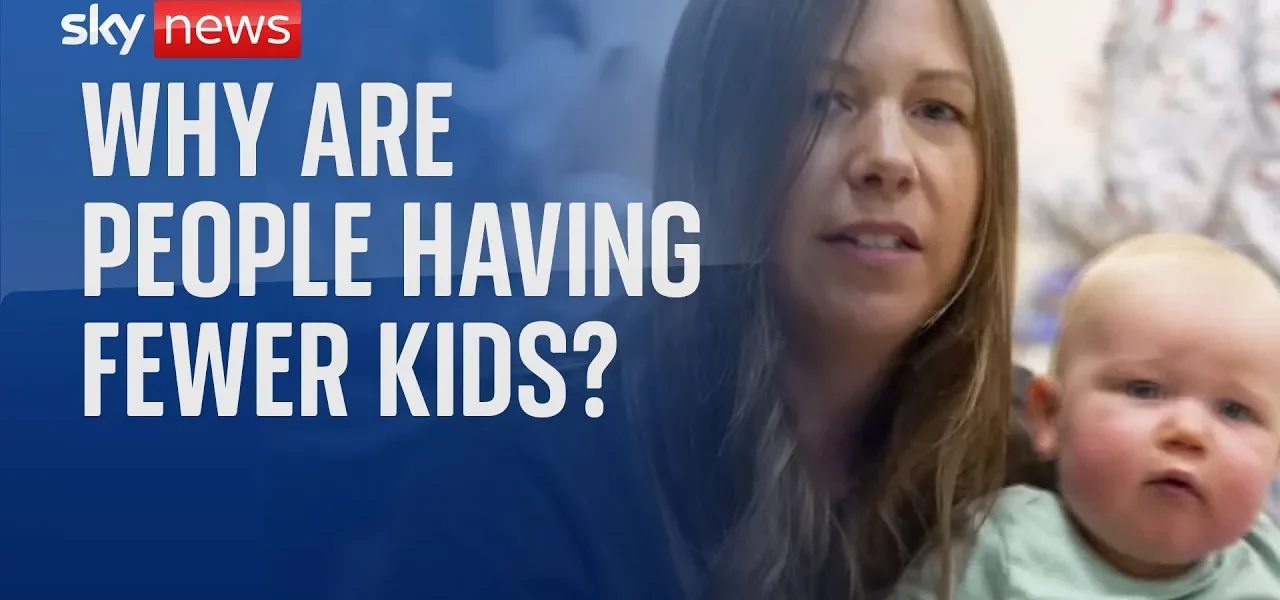Declining Fertility Rates and Their Impact on the UK Economy

As fertility rates in the UK hit record lows, many families face tough decisions influenced by financial constraints. This article delves into the reasons behind declining birth rates and the potential consequences for future generations and the economy.
Introduction
The UK is witnessing a significant decline in fertility rates, raising concerns about the long-term implications for the economy and society. As families grapple with the financial burdens associated with raising children, many are reconsidering their family planning decisions. This article explores the factors contributing to this trend and its potential impact on the country’s future.
The Current State of Fertility Rates in the UK
Recent analysis indicates that the UK has experienced the largest decline in fertility rates among G7 countries since 2010, with a staggering 18.8% drop. This raises questions about the sustainability of the population and the economy.
Statistical Overview
- UK fertility rate drop: 18.8% since 2010
- Comparison with other G7 nations showing less pronounced declines
- Regional disparities, particularly in the Northeast of England
Financial Challenges Facing Parents
Many families cite financial constraints as a significant factor in their decision to limit the number of children they have. The cost of living, including housing, childcare, and education, plays a crucial role.
The Cost of Raising a Child
- Childcare expenses: Nursery costs are often prohibitive.
- Housing costs: Rising mortgage and rent prices make family expansion challenging.
- Daily expenses: Basic necessities such as clothing and food add to financial strain.
Impact of Employment on Family Planning
For many parents, the balance between working full-time and raising children is delicate. Maternity pay and job security become critical considerations.
- Maternity leave duration and pay are insufficient for many families.
- Returning to work often involves high childcare costs, discouraging larger families.
Societal Implications of Declining Birth Rates
The observed decline in fertility rates could have profound implications for the UK’s demographic landscape and economic stability.
Future Workforce Concerns
As the population ages, the proportion of working-age individuals may not sustain the economy effectively, leading to greater reliance on immigration to fill workforce gaps.
Education and School Closures
Fewer children also mean fewer schools are needed. This trend has led to school closures, particularly in areas with declining birth rates.
- Examples of school closures in underpopulated regions.
- The long-term effects on community structure and local economies.
Government Policies and Social Support
The role of government policy in shaping family planning decisions cannot be understated. Austerity measures and cuts to family support have disproportionately affected lower-income families.
Effects of Austerity Measures
Regions with higher levels of deprivation have experienced sharper declines in fertility rates, highlighting socioeconomic disparities.
Possible Solutions and Recommendations
- Enhancing maternity and paternity leave policies.
- Increasing financial support for families, such as childcare subsidies.
- Encouraging flexible working arrangements to support parents.
Conclusion
The decline in fertility rates in the UK reflects a complex interplay of financial, social, and economic factors. As families navigate these challenges, it is imperative for policymakers to consider the long-term implications on the workforce and the economy. By addressing the financial barriers to family expansion, the UK can foster a more sustainable demographic future.
For further insights into how economic policies influence family planning and the broader implications for society, explore our related articles on government policies and economic impacts on families.
“`




